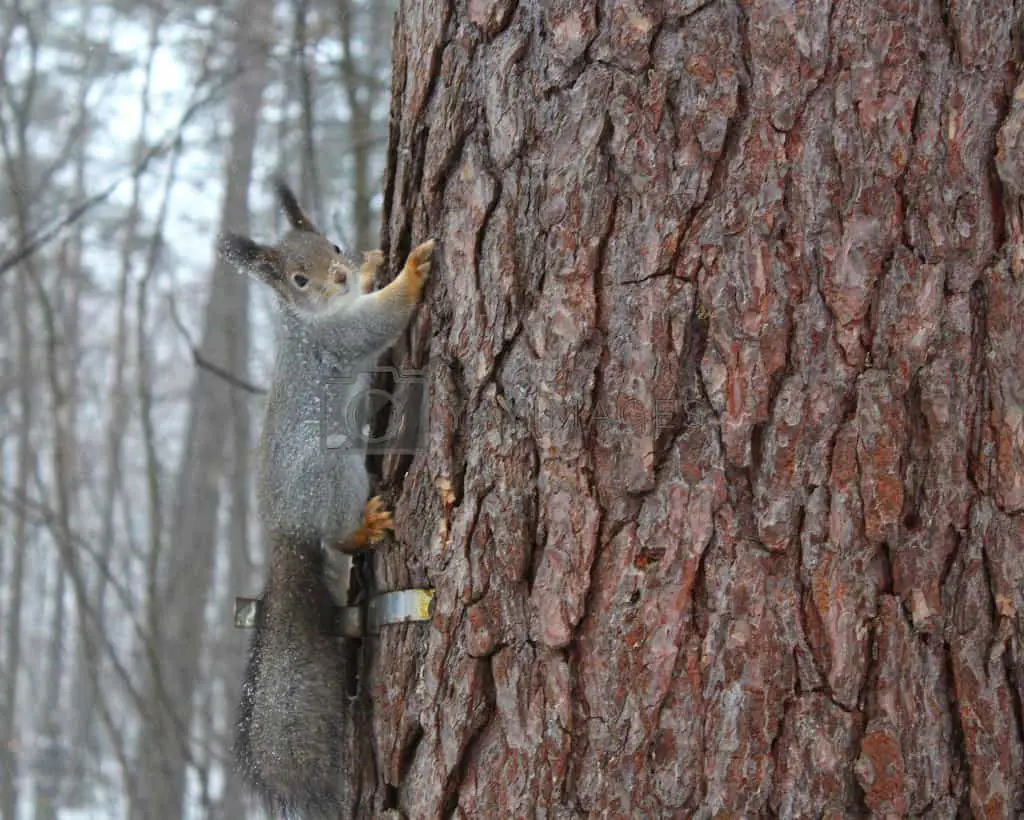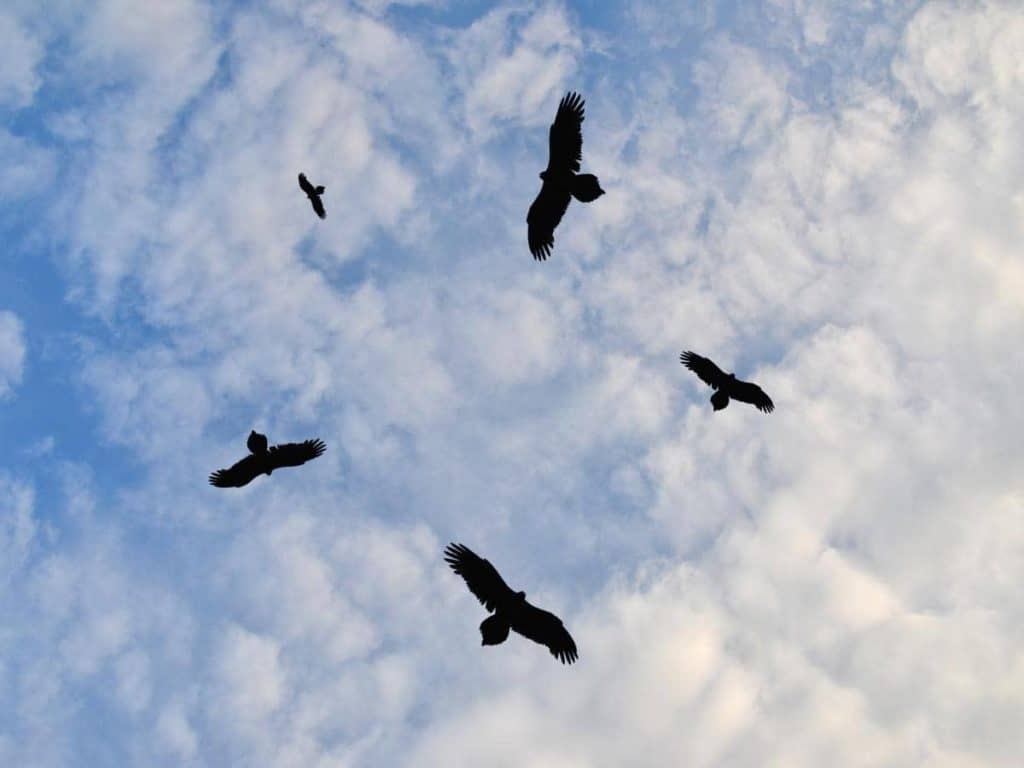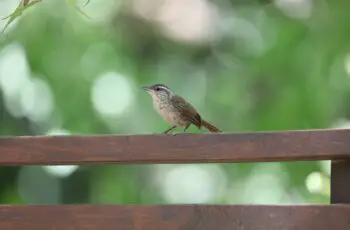There’s a common belief that squirrels are harmful to trees – many people believe that the furry creatures strip the bark off of trees, leaving them susceptible to disease and death.
But are squirrels harmful to trees and even kill trees?
Are squirrels actually bad for trees, or are they innocent little critters that get a bad rap?
Let’s take a closer look at the relationship between squirrels and trees to find out!
The Short Answer …
Squirrels are harmful to trees because of their feeding and nesting activities. In serious cases, squirrels can kill trees. Gray squirrels are generally more harmful to trees than red squirrels. Metal bands, chemical repellents, and trimming tree limbs are the best ways to prevent squirrels from harming the trees.
Are Squirrels Harmful To Trees?
Although squirrels are often considered pests, raiding bird feeders, and flower beds, they can cause serious damage to trees.
Squirrels have sharp teeth for gnawing and will strip away the bark of a tree to get to the nutritious inner layer.
This damage weakens the tree, making it more susceptible to disease and insect infestation.
Furthermore, squirrels are known to construct their nests in tree branches, which puts additional pressure on the limbs.
Consequently, it’s important to take steps to stop squirrels from entering your trees.
One way is to install guards around the trunk.
Another option is setting up a fence around your property’s perimeter.
By taking these measures, you can safeguard your trees from the dangers posed by squirrels.
Are Squirrel Nests Bad For Trees?
Some people think that squirrels nesting in trees might be dangerous for the tree.
The worry is usually about the nest being too heavy and causing branches to break or collapse from the weight.
Another concern is when they strip away bark from the tree while building their nests—it makes the tree vulnerable to disease because its protective layer is gone.
Squirrel nests, while dangerous to trees in some situations, are not always so. If the nest is placed on a fork or bend of the tree, there is little risk of damage. In reality, many squirrel nests aid in the protection of trees from inclement weather.
What Damages Do Squirrels Cause To Trees?
Though they may be perceived as being harmless and even cute, squirrels can cause extensive damage to your trees if you have a lot of them in your yard. Some of the ways that squirrels damage trees include stripping tree bark and chewing on branches.
Strip off tree bark
When squirrels strip off tree bark, it leaves the tree vulnerable to disease and infection because less protection is surrounding the trunk from outside elements. If the Bark is stripped from a large area of the tree, then chances are high the entire tree will die. In addition to this, another way these pesky critters inflict harm upon trees is by simply chewing on branches.
Nipping Off Branches
If a squirrel gnaws away at small branches in pursuit of food, the tree suffers as a result. This might not seem harmful at first, but it can actually have progressive and debilitating effects on the tree over time. If the tree doesn’t have enough nutritious branches left, its chance of survival decreases significantly.
Making Tree Holes Bigger
Furthermore, squirrels often enlargen existing holes in trees when constructing nests. This weakens the tree, making it more susceptible to disease and infection. Also, if the hole is large enough, it could result in the tree toppling over.
Eating Buds
Squirrels may also harm trees by eating buds. This is frequently the case in early spring when there are few alternative sources of food. The problem is that eating buds might prevent the tree from flowering or bearing fruit.
Consuming Nuts
Another way that squirrels damage trees are by eating the nuts off of them. This generally occurs during late summer or early fall when there are plenty of nuts.
The downside to this behavior is that it can stop the tree from getting vital nutrients. Also, if the squirrel ate all of the nuts, none would be left for other creatures to consume.
As you can see, squirrels damaging trees is not an uncommon occurrence.
In order to protect your trees from further damage, here are some tips: trim branches back, wrap trunks in chicken wire and fill holes with concrete.
If these animals still refuse to leave your property alone, the next best step would be hiring a professional exterminator who will know how to get rid of them for good.
Do Squirrels Kill Trees?

Although squirrels are often viewed as docile animals, they can cause irreparable damage to trees by chewing through the bark of their nests.
This action exposes the inner wood of the tree to disease and pests, making it more susceptible to breaking and eventually leading to its death.
Squirrels can also damage young trees by gnawing on them; if a squirrel bites down and chews on a young tree for quite some time, it may kill the tree.
As a result, it’s critical to prevent squirrels from climbing trees, particularly those that are still growing.
Wrapping the trunk of the tree in chicken wire or hardware cloth is one method to keep squirrels away from it and protect it from harm.
Which Squirrel Species Are More Harmful To Trees?
Squirrels in North America are divided into two categories: grey squirrels and red squirrels.
Both species are known to denude trees, although the extent of damage inflicted varies depending on the species.
Gray squirrels are generally more harmful than red squirrels since they are larger and can remove greater amounts of bark from a tree.
This exposes the tree to illnesses and pests, which can cause limbs or even the entire tree to fall down.
Girdling, or girdling trees, is a grey squirrel-induced tree death that has been seen.
This entails taking all of the bark off a tree’s trunk, which might prevent it from receiving nutrients and water. As a result, the tree dies slowly.
Red squirrels are also capable of damaging trees; however, they are considered less hazardous than grey squirrels owing to their smaller size.
How To Prevent Squirrels From Damaging Trees?
Squirrels, despite their diminutive and agile appearance, can do significant harm to trees. Squirrels have already caused a lot of damage if they’re in your yard.
Squirrels adore chewing on tree bark; over time, this may lead to the death or injury of a tree. There are several strategies for preventing squirrels from damaging your trees that you may deploy.
Metal bands
You can keep squirrels from damaging your trees by using large metal straps to prevent them from climbing. These animals are unable to grasp these bands since they make climbing difficult or impossible for squirrels, keeping them away from the bark.
Chemical Repellents
You can also prevent squirrels from climbing your trees by spraying a mixture of repellent chemicals around them. Capsaicin is a chemical that gives peppers their pungent flavor and may also be used as a repellent. Mothballs are commonly employed to keep moths at bay and might also aid in the prevention of squirrels from climbing trees.
Trim Tree Limbs
Finally, you may trim tree branches to prevent squirrels from gaining easy access. This will aid in the prevention of squirrel damage to your trees.
Squirrels are tenacious, however. You may need to try several strategies before discovering one that works for you.
Conclusion
Squirrels can be a serious issue for many different species of trees.
Are squirrels harmful to trees? Squirrels may harm or even kill a tree in certain cases.
Metal bands and insect repellents may be used to keep squirrels away from your trees if you live near them.
If you have squirrels on your property, taking these steps may help to prevent them from causing damage to your trees.


